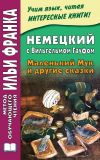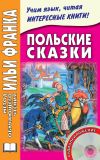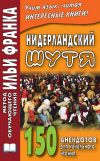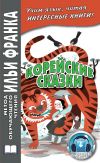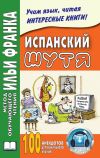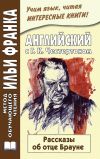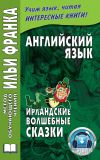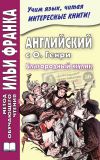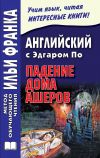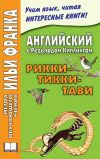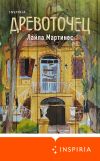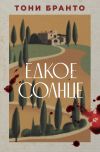Текст книги "Английский с Г. К. Честертоном. Случаи отца Брауна / Gilbert Keith Chesterton. The Sins of Prince Saradine. The Eye of Apollo"
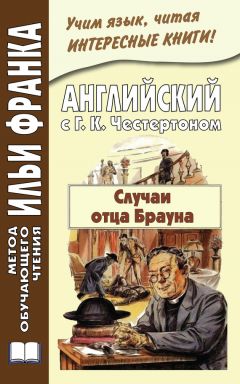
Автор книги: Гилберт Честертон
Жанр: Иностранные языки, Наука и Образование
Возрастные ограничения: +16
сообщить о неприемлемом содержимом
Текущая страница: 3 (всего у книги 11 страниц) [доступный отрывок для чтения: 3 страниц]

Oh, it would be hard, it would be mighty hard, to pick out the good one.”
“I don’t understand you,” said Father Brown, and began to move away.
The woman took a step nearer to him, with thunderous brows and a sort of savage stoop, like a bull lowering his horns.
“There isn’t a good one,” she hissed (среди них нет хорошего, – прошипела она). “There was badness enough in the captain taking all that money (достаточно нехорошо было со стороны капитана взять все эти деньги; badness – негодность; безнравственность, испорченность), but I don’t think there was much goodness in the prince giving it (но не думаю, что принц совершил благое дело, отдав их; goodness – доброта; благо). The captain’s not the only one with something against him (капитан не единственный, против кого кое-что имеется).”
A light dawned on the cleric’s averted face (свет /понимания/ озарил повернутое в сторону лицо священника; to dawn – рассветать, заниматься /о заре/; осенять; cleric – духовное лицо), and his mouth formed silently the word “blackmail” (а его губы беззвучно произнесли слово «шантаж»; to form – придавать форму). Even as he did so the woman turned an abrupt white face over her shoulder and almost fell (в тот самый момент, когда он так делал, женщина повернула свое внезапно побелевшее лицо /в сторону двери, взглянула/ через плечо и чуть не упала; even as – как раз, в тот самый момент; almost – почти; to fall).

“There isn’t a good one,” she hissed. “There was badness enough in the captain taking all that money, but I don’t think there was much goodness in the prince giving it. The captain’s not the only one with something against him.”
A light dawned on the cleric’s averted face, and his mouth formed silently the word “blackmail.” Even as he did so the woman turned an abrupt white face over her shoulder and almost fell.
The door had opened soundlessly (дверь бесшумно отворилась) and the pale Paul stood like a ghost in the doorway (и в дверном проеме, словно привидение, возник бледный Пауль; to stand – стоять; вырисовываться, виднеться). By the weird trick of the reflecting walls (благодаря жутковатому эффекту, который создавали отражающие стены; trick – обман; трюк, фокус), it seemed as if five Pauls had entered by five doors simultaneously (казалось, будто пять Паулей одновременно вошли в пять дверей).
“His Highness,” he said, “has just arrived (его высочество, – сказал он, – только что прибыли).”
In the same flash the figure of a man had passed outside the first window (в тот же миг мимо первого окна с наружной стороны /дома/ прошествовала фигура мужчины; flash – вспышка; миг, мгновение), crossing the sunlit pane like a lighted stage (и пересекла залитый солнцем оконный проем, словно /ярко/ освещенную сцену; pane – оконное стекло).

The door had opened soundlessly and the pale Paul stood like a ghost in the doorway. By the weird trick of the reflecting walls, it seemed as if five Pauls had entered by five doors simultaneously.
“His Highness,” he said, “has just arrived.”
In the same flash the figure of a man had passed outside the first window, crossing the sunlit pane like a lighted stage.
An instant later he passed at the second window (мгновением позже он появился у второго окна; to pass – проходить; появиться) and the many mirrors repainted in successive frames (и множество зеркал отразили в каждом последующем проеме; to repaint – перекрашивать, перерисовывать) the same eagle profile and marching figure (его орлиный профиль и /решительно/ вышагивающую фигуру; to march – шагать, маршировать). He was erect and alert (/осанка/ его была прямой, а /походка/ легкой; erect – прямой, вертикальный; alert – бдительный, настороженный; живой, проворный), but his hair was white and his complexion of an odd ivory yellow (хотя волосы уже поседели, а лицо имело странный желтоватый /оттенок/ слоновой кости; white – белый; седой). He had that short, curved Roman nose (у него был тот короткий изогнутый римский нос) which generally goes with long, lean cheeks and chin (которому, что нередко встречается у южан, сопутствовали впалые щеки и выступающий вперед подбородок; generally – обычно, в большинстве случаев; to go with – сопровождать; long – длинный; продолговатый, удлиненный), but these were partly masked by moustache and imperial (но они частично были прикрыты усами и эспаньолкой; to mask – надевать маску, маскировать; imperial – член императорской семьи; эспаньолка /узкая остроконечная бородка/).

An instant later he passed at the second window and the many mirrors repainted in successive frames the same eagle profile and marching figure. He was erect and alert, but his hair was white and his complexion of an odd ivory yellow. He had that short, curved Roman nose which generally goes with long, lean cheeks and chin, but these were partly masked by moustache and imperial.
The moustache was much darker than the beard (усы были значительно темнее бородки), giving an effect slightly theatrical (от чего создавалось немного театральное впечатление; effect – воздействие; эффект, впечатление), and he was dressed up to the same dashing part (одет он был стильно, в соответствии с той же ролью; part – доля, часть; роль /театр./), having a white top hat, an orchid in his coat (имея белый цилиндр, орхидею в /петлице/ сюртука), a yellow waistcoat and yellow gloves (желтый жилет и желтые перчатки) which he flapped and swung as he walked (которыми он похлопывал и помахивал при ходьбе; to swing – качать; размахивать; to walk – идти /пешком/). When he came round to the front door (когда он, обогнув /дом/, подошел к парадной двери; to come round – обходить) they heard the stiff Paul open it (они услышали, как чопорный Пауль открыл ее; to hear; stiff – жесткий, негибкий; церемонный), and heard the new arrival say cheerfully (а вновь прибывший весело сказал), “Well, you see I have come (ну, как видите, я приехал).” The stiff Mr. Paul bowed and answered in his inaudible manner (мистер Пауль церемонно поклонился и в /присущей/ ему манере /что-то/ негромко ответил; inaudible – неслышный, невнятный); for a few minutes their conversation could not be heard (в течение /последующих/ нескольких минут их разговор невозможно было расслышать).

The moustache was much darker than the beard, giving an effect slightly theatrical, and he was dressed up to the same dashing part, having a white top hat, an orchid in his coat, a yellow waistcoat and yellow gloves which he flapped and swung as he walked. When he came round to the front door they heard the stiff Paul open it, and heard the new arrival say cheerfully, “Well, you see I have come.” The stiff Mr. Paul bowed and answered in his inaudible manner; for a few minutes their conversation could not be heard.
Then the butler said (потом дворецкий сказал), “Everything is at your disposal (всё к вашим услугам; disposal – размещение, расположение; право распоряжаться)”; and the glove-flapping Prince Saradine came gaily into the room to greet them (и похлопывающий перчатками принц Сарадин радостно вошел в комнату, чтобы поприветствовать их = гостей). They beheld once more that spectral scene (им снова довелось узреть эту нереальную картину; to behold; scene – сцена, подмостки; зрелище, вид) – five princes entering a room with five doors (как пятеро принцев входили в комнату через пять дверей).
The prince put the white hat and yellow gloves on the table (принц положил белый цилиндр и желтые перчатки на стол) and offered his hand quite cordially (и дружески протянул: «предложил» руку; quite – вполне, совершенно; cordially – сердечно; дружески).
“Delighted to see you here, Mr. Flambeau (рад вас видеть здесь, мистер Фламбо),” he said. “Knowing you very well by reputation (ваша репутация очень хорошо известна: «/я/ знаю вас очень хорошо по репутации»), if that’s not an indiscreet remark (если не /сочтете/ это замечание оскорбительным; indiscreet – неосмотрительный, несдержанный).”

Then the butler said, “Everything is at your disposal”; and the glove-flapping Prince Saradine came gaily into the room to greet them. They beheld once more that spectral scene – five princes entering a room with five doors.
The prince put the white hat and yellow gloves on the table and offered his hand quite cordially.
“Delighted to see you here, Mr. Flambeau,” he said. “Knowing you very well by reputation, if that’s not an indiscreet remark.”
“Not at all,” answered Flambeau, laughing (ничуть, – отвечал Фламбо со смехом). “I am not sensitive (я не обидчив; sensitive – чувствительный; впечатлительный). Very few reputations are gained by unsullied virtue (очень немногие получили известность благодаря своей незапятнанной репутации; reputation – репутация; слава, известность; virtue – добродетель; нравственность, мораль).”
The prince flashed a sharp look at him (принц пристально взглянул на него; to flash – сверкать, вспыхивать; бросить /взгляд и т. п./; sharp – острый, остроконечный; проницательный) to see if the retort had any personal point (/пытаясь/ понять, не было ли это замечание намеком на кого-то /из присутствующих/; to see – видеть, смотреть; понимать; retort – резкий ответ; остроумная реплика; point – точка, пятнышко; намек; personal – личный; затрагивающий личность); then he laughed also and offered chairs to everyone, including himself (потом тоже рассмеялся и предложил всем стулья, включая и себя).

“Not at all,” answered Flambeau, laughing. “I am not sensitive. Very few reputations are gained by unsullied virtue.”
The prince flashed a sharp look at him to see if the retort had any personal point; then he laughed also and offered chairs to everyone, including himself.
“Pleasant little place, this, I think (милое местечко, я полагаю),” he said with a detached air (сказал он с невозмутимым видом; detached – отдельный, обособленный; бесстрастный, невозмутимый /о взгляде, выражении лица/). “Not much to do, I fear (но, боюсь, заняться тут особенно нечем); but the fishing is really good (хотя рыбалка и вправду хороша).”
The priest, who was staring at him with the grave stare of a baby (священнику, который пристально смотрел на него серьезным взглядом младенца; grave /прил./ – серьезный и торжественный), was haunted by some fancy that escaped definition (не давало покоя какое-то неясное ощущение; to haunt – жить, обитать /о привидении/; не давать покоя, преследовать; fancy – фантазия; to escape – совершать побег; ускользать /из памяти, от внимания/; definition – определение, формулировка). He looked at the grey, carefully curled hair (он смотрел на седые, тщательно завитые волосы), yellow white visage, and slim, somewhat foppish figure (на бледную желтизну лица, на стройную, молодцеватую фигуру; white – белый; бледный; somewhat – отчасти, слегка; visage – внешний вид; выражение лица, лицо; foppish – фатоватый, щегольской; fop – фат, хлыщ, щеголь).

“Pleasant little place, this, I think,” he said with a detached air. “Not much to do, I fear; but the fishing is really good.”
The priest, who was staring at him with the grave stare of a baby, was haunted by some fancy that escaped definition. He looked at the grey, carefully curled hair, yellow white visage, and slim, somewhat foppish figure.
These were not unnatural, though perhaps a shade prononcé (все это не было неестественным, и все же, возможно, излишне подчеркнутым; prononcé /фр./ – резкий, подчеркнутый; явный; shade – тень, полумрак; незначительное количество), like the outfit of a figure behind the footlights (как костюм /театрального/ персонажа, /стоящего/ в свете рампы; outfit – снаряжение; наряд, костюм; figure – фигура /человека/). The nameless interest lay in something else, in the very framework of the face (невольный интерес вызывало что-то еще, /скорее/, само строение лица; nameless – безымянный; смутный, неясный; to lie – лежать; находиться, заключаться /в чем-л./); Brown was tormented with a half memory of having seen it somewhere before (Брауна мучило смутное воспоминание, что он раньше где-то это уже видел). The man looked like some old friend of his dressed up (тот человек выглядел, словно старый друг в маскарадном костюме; to dress up – надевать маскарадный костюм). Then he suddenly remembered the mirrors (тут он вдруг вспомнил про зеркала), and put his fancy down to some psychological effect of that multiplication of human masks (и приписал это свое ощущение психологическому эффекту множественного /наложения/ человеческих масок; to put down to – приписывать /чему-л./, относить на счет /кого-л., чего-л./; multiplication – умножение; увеличение).

These were not unnatural, though perhaps a shade prononcé, like the outfit of a figure behind the footlights. The nameless interest lay in something else, in the very framework of the face; Brown was tormented with a half memory of having seen it somewhere before. The man looked like some old friend of his dressed up. Then he suddenly remembered the mirrors, and put his fancy down to some psychological effect of that multiplication of human masks.
Prince Saradine distributed his social attentions between his guests (принц Сарадин распределял свое дружеское внимание между гостями; social – общественный; компанейский, дружеский) with great gaiety and tact (с большой веселостью и тактом). Finding the detective of a sporting turn and eager to employ his holiday (узнав, что сыщик любит рыбалку и жаждет посвятить ей свое свободное время; to find – находить; узнать, выяснить; sport – спорт; охота, рыбная ловля; turn – поворот; склад /характера/; to employ – нанимать /на работу/; использовать, употреблять), he guided Flambeau and Flambeau’s boat down to the best fishing spot in the stream (он проводил Фламбо на его лодке к лучшему рыбному месту на реке), and was back in his own canoe in twenty minutes (и вернулся назад в собственном челноке через двадцать минут; canoe – каноэ; челнок) to join Father Brown in the library (чтобы присоединиться к отцу Брауну в библиотеке) and plunge equally politely into the priest’s more philosophic pleasures (и погрузиться в равной степени любезно в более философские увлечения: «удовольствия» священника; to plunge – погружаться; нырять).

Prince Saradine distributed his social attentions between his guests with great gaiety and tact. Finding the detective of a sporting turn and eager to employ his holiday, he guided Flambeau and Flambeau’s boat down to the best fishing spot in the stream, and was back in his own canoe in twenty minutes to join Father Brown in the library and plunge equally politely into the priest’s more philosophic pleasures.
He seemed to know a great deal both about the fishing and the books (казалось, он хорошо разбирался и в рыбной ловле, и в книгах; to know – знать, иметь представление /о чем-л./; разбираться /в чем-л./; a great deal – много; both /союз/ – как…, так и), though of these not the most edifying (правда не в самых нравоучительных; to edify – наставлять, поучать); he spoke five or six languages (говорил он на пяти или шести языках), though chiefly the slang of each (хотя, главным образом на их жаргонах). He had evidently lived in varied cities and very motley societies (не приходилось сомневаться: «несомненно», что он /подолгу/ жил в различных городах и /водил знакомство/ с самой пестрой публикой), for some of his cheerfullest stories were about gambling hells and opium dens (поскольку некоторые из самых забавных его историй были об игорных домах и притонах для курильщиков опиума; to gamble – играть в азартные игры; hell – ад, преисподняя; игорный дом), Australian bushrangers or Italian brigands (об австралийских беглых каторжниках и итальянских разбойниках).

He seemed to know a great deal both about the fishing and the books, though of these not the most edifying; he spoke five or six languages, though chiefly the slang of each. He had evidently lived in varied cities and very motley societies, for some of his cheerfullest stories were about gambling hells and opium dens, Australian bushrangers or Italian brigands.
Father Brown knew that the once-celebrated Saradine (отец Браун знал, что знаменитый некогда Сарадин; to celebrate – праздновать; славиться, быть знаменитым) had spent his last few years in almost ceaseless travel (провел последние несколько лет в почти беспрерывных путешествиях; to spend – тратить, расходовать; проводить /время/), but he had not guessed (но он и не предполагал; to guess – гадать, догадываться; полагать, считать) that the travels were so disreputable or so amusing (что эти путешествия были такими скандальными и такими занимательными; disreputable – дискредитирующий, постыдный; to amuse – развлекать).
Indeed, with all his dignity of a man of the world (и все же, несмотря на весь апломб человека, много повидавшего; indeed – в самом деле, действительно; dignity – достоинство; man of the world – умудренный опытом человек), Prince Saradine radiated to such sensitive observers as the priest (принц Сарадин излучал, /что сразу уловил/ такой чуткий наблюдатель, каким был священник; to radiate – излучать /свет, тепло/), a certain atmosphere of the restless and even the unreliable (определенную атмосферу беспокойства и даже ненадежности; restless – беспокойный; unreliable – ненадежный; to rely – полагаться).

Father Brown knew that the once-celebrated Saradine had spent his last few years in almost ceaseless travel, but he had not guessed that the travels were so disreputable or so amusing.
Indeed, with all his dignity of a man of the world, Prince Saradine radiated to such sensitive observers as the priest, a certain atmosphere of the restless and even the unreliable.
His face was fastidious, but his eye was wild (лицо его было утонченным, но взгляд диким; fastidious – привередливый; eye – глаз; взгляд); he had little nervous tricks (в манерах его проскальзывала легкая нервозность; little – маленький, небольшой; незначительный; trick – трюк; обман; привычка, манера), like a man shaken by drink or drugs (как у человека, ослабленного /длительным употреблением/ алкоголя или наркотиков; to shake – трясти, встряхивать; ослабить; drink – напиток, питье; пьянство), and he neither had, nor professed to have, his hand on the helm of household affairs (он не решал никаких вопросов по управлению усадьбой: «никогда не держал руку на штурвале домашних дел», да и не скрывал этого; to profess – открыто признавать, утверждать; изображать, притворяться). All these were left to the two old servants (все они были возложены на двух проверенных годами слуг; to leave – оставлять, покидать; предоставлять, поручать), especially to the butler (особенно на дворецкого), who was plainly the central pillar of the house (который, без сомнения, и был центральной опорой дома; pillar – колонна, столб; столп, опора).

His face was fastidious, but his eye was wild; he had little nervous tricks, like a man shaken by drink or drugs, and he neither had, nor professed to have, his hand on the helm of household affairs. All these were left to the two old servants, especially to the butler, who was plainly the central pillar of the house.
Mr. Paul, indeed, was not so much a butler as a sort of steward or, even, chamberlain (а мистер Пауль, по сути, был не столько дворецким, сколько чем-то вроде управляющего или даже камергера); he dined privately, but with almost as much pomp as his master (обедал он отдельно: «частным образом», но почти с той же пышностью, что и его хозяин); he was feared by all the servants (все слуги его боялись); and he consulted with the prince decorously, but somewhat unbendingly (/соблюдая/ приличия, он советовался с принцем, но /при этом/ проявлял некоторое упорство; decorously – прилично, благопристойно; unbendingly – несгибаемо; непреклонно; to bend – гнуть) – rather as if he were the prince’s solicitor (будто являлся поверенным принца). The sombre housekeeper was a mere shadow in comparison (по сравнению с ним = на его фоне хмурая экономка была всего лишь тенью); indeed, she seemed to efface herself and wait only on the butler (в самом деле, она казалась фигурой второго плана и только лишь помогала дворецкому; to efface – стирать, вычеркивать; to efface oneself – стушеваться, держаться в тени; to wait on – обслуживать, прислуживать), and Brown heard no more of those volcanic whispers (и Браун больше не слышал того страстного шепота; volcanic – вулканический; горячий, пылкий) which had half told him (которым она чуть не рассказала ему; half – наполовину; почти; to tell) of the younger brother who blackmailed the elder (о том, как младший брат шантажировал старшего).

Mr. Paul, indeed, was not so much a butler as a sort of steward or, even, chamberlain; he dined privately, but with almost as much pomp as his master; he was feared by all the servants; and he consulted with the prince decorously, but somewhat unbendingly – rather as if he were the prince’s solicitor. The sombre housekeeper was a mere shadow in comparison; indeed, she seemed to efface herself and wait only on the butler, and Brown heard no more of those volcanic whispers which had half told him of the younger brother who blackmailed the elder.
Whether the prince was really being thus bled by the absent captain (действительно ли отсутствующий здесь капитан вымогал у принца /деньги/; to bleed – истекать кровью; пускать кровь; раскрутить на /что-л., какую-л. сумму/), he could not be certain (он не мог быть уверен), but there was something insecure and secretive about Saradine (но в Сарадине было что-то ненадежное и потаенное) that made the tale by no means incredible (отчего эта история отнюдь не казалась невероятной: «что отнюдь не делало рассказ невероятным»; by no means – нисколько не, отнюдь не).
When they went once more into the long hall with the windows and the mirrors (когда они снова вошли в длинный зал с окнами и зеркалами), yellow evening was dropping over the waters and the willowy banks (на реку и поросшие ивами берега опускался желтый вечер; to drop – капать, падать каплями; снижаться, опускаться; waters – воды /реки и т. п./); and a bittern sounded in the distance (вдалеке гудела выпь; to sound – издавать звук) like an elf upon his dwarfish drum (словно какой-то эльф /стучал/ в свой малюсенький барабан; dwarfish – карликовый; dwarf – карлик).

Whether the prince was really being thus bled by the absent captain, he could not be certain, but there was something insecure and secretive about Saradine that made the tale by no means incredible.
When they went once more into the long hall with the windows and the mirrors, yellow evening was dropping over the waters and the willowy banks; and a bittern sounded in the distance like an elf upon his dwarfish drum.
The same singular sentiment of some sad and evil fairyland (и та же странная мысль о печальной и злобной сказочной стране; sentiment – чувство; мысль) crossed the priest’s mind again like a little grey cloud (снова промелькнула в мозгу священника маленьким серым облачком; to cross – пересекать; проходить). “I wish Flambeau were back,” he muttered (хоть бы Фламбо вернулся, – пробормотал он; I wish – лучше бы, хоть бы; to wish – желать, хотеть).
“Do you believe in doom (вы верите в судьбу)?” asked the restless Prince Saradine suddenly (спросил вдруг принц Сарадин тревожно).
“No,” answered his guest (нет, – отвечал его гость). “I believe in Doomsday (я верю в Судный день; автор использует игру слов: современное “doom” /судьба, рок/ происходит от древнеанглийского “dom” /Страшный суд/).”
The prince turned from the window and stared at him in a singular manner (принц отвернулся от окна и как-то странно уставился на него; singular – единственный в своем роде, уникальный; необычный, странный; in a manner – некоторым образом, до некоторой степени), his face in shadow against the sunset (на фоне заката его лицо оставалось в тени). “What do you mean?” he asked (что вы имеете в виду? – спросил он; to mean – намереваться; подразумевать, иметь в виду).

The same singular sentiment of some sad and evil fairyland crossed the priest’s mind again like a little grey cloud. “I wish Flambeau were back,” he muttered.
“Do you believe in doom?” asked the restless Prince Saradine suddenly.
“No,” answered his guest. “I believe in Doomsday.”
The prince turned from the window and stared at him in a singular manner, his face in shadow against the sunset. “What do you mean?” he asked.
“I mean that we here are on the wrong side of the tapestry (только то, что мы находимся с изнаночной стороны гобелена; tapestry – затканная от руки материя; гобелен),” answered Father Brown (отвечал отец Браун). “The things that happen here do not seem to mean anything (события, происходящие здесь, кажется, ничего не значат; thing – вещь, предмет; обстоятельство, случай; to mean – подразумевать; значить, означать); they mean something somewhere else (они что-то значат где-то в другом месте: «где-то еще»). Somewhere else retribution will come on the real offender (где-то в другом месте возмездие настигнет настоящего злодея; to come on – нападать, обрушиваться; offender – обидчик; преступник). Here it often seems to fall on the wrong person (а здесь часто /наказание/ достается не тому, кому нужно; to fall – падать; выпадать /на чью-л. долю/, доставаться; wrong – неправильный, неверный).”
The prince made an inexplicable noise like an animal (принц издал непонятный звук, похожий на /рев/ животного; noise – шум; неприятный звук); in his shadowed face the eyes were shining queerly (на его находящемся в тени лице странно заблестели глаза).

“I mean that we here are on the wrong side of the tapestry,” answered Father Brown. “The things that happen here do not seem to mean anything; they mean something somewhere else. Somewhere else retribution will come on the real offender. Here it often seems to fall on the wrong person.”
The prince made an inexplicable noise like an animal; in his shadowed face the eyes were shining queerly.
A new and shrewd thought exploded silently in the other’s mind (новая догадка бесшумно взорвалась в мозгу отца Брауна; shrewd – проницательный; близкий к истине; thought – мысль; other – другой, иной; другой, второй /из двух/). Was there another meaning in Saradine’s blend of brilliancy and abruptness (было ли иное объяснение тому, что /манеры/ Сарадина были столь утонченными и одновременно резкими; meaning – значение; blend – смесь; brilliancy – яркость, блеск; великолепие; abrupt – внезапный; резкий, грубый)? Was the prince – was he perfectly sane (был ли принц – был ли он полностью в своем уме; perfectly – отлично, прекрасно; совершенно, полностью)? He was repeating, “The wrong person – the wrong person (он постоянно повторял: “не тому, кому нужно”),” many more times than was natural in a social exclamation (намного чаще: «много больше раз», чем было бы естественно для восклицания, /произносимого/ в обществе; social – общественный; относящийся к положению в обществе, светский).

A new and shrewd thought exploded silently in the other’s mind. Was there another meaning in Saradine’s blend of brilliancy and abruptness? Was the prince – was he perfectly sane? He was repeating, “The wrong person – the wrong person,” many more times than was natural in a social exclamation.
Then Father Brown awoke tardily to a second truth (тут отец Браун с опозданием понял еще одно; to awake – проснуться; осознавать, понимать; second – второй; дополнительный; truth – истина, правда). In the mirrors before him he could see the silent door standing open (в зеркалах перед собой он мог видеть немой /проем/ открытой двери; to stand – стоять; находиться в определенном состоянии), and the silent Mr. Paul standing in it (и стоящего в нем безмолвного мистера Пауля), with his usual pallid impassiveness (как обычно, бледного и бесстрастного; impassive – невозмутимый, бесстрастный).
“I thought it better to announce at once (я подумал, что лучше доложить безотлагательно; to announce – объявлять; докладывать /о прибытии гостей/),” he said, with the same stiff respectfulness as of an old family lawyer (сказал он с той же чопорной учтивостью старинного семейного адвоката), “a boat rowed by six men has come to the landing-stage (к причалу подошла лодка с шестью гребцами; to row – грести, работать веслами), and there’s a gentleman sitting in the stern (а на корме сидит какой-то джентльмен).”

Then Father Brown awoke tardily to a second truth. In the mirrors before him he could see the silent door standing open, and the silent Mr. Paul standing in it, with his usual pallid impassiveness.
“I thought it better to announce at once,” he said, with the same stiff respectfulness as of an old family lawyer, “a boat rowed by six men has come to the landing-stage, and there’s a gentleman sitting in the stern.”
“A boat!” repeated the prince; “a gentleman (лодка! – повторил принц, – джентльмен)?” and he rose to his feet (и поднялся на ноги; to rise).
There was a startled silence punctuated only by the odd noise of the bird in the sedge (зловещую: «пугающую» тишину нарушал только чудной крик птицы в /зарослях/ осоки; to punctuate – расставлять знаки препинания; вмешаться, прервать); and then, before anyone could speak again (и тут, прежде чем кто-нибудь снова заговорил: «смог заговорить снова»), a new face and figure passed in profile round the three sunlit windows (новая фигура с лицом, /видимым/ в профиль, прошла мимо трех освещенных /закатным/ солнцем окон), as the prince had passed an hour or two before (так же как прошел принц за пару часов до того). But except for the accident that both outlines were aquiline (но за исключением того совпадения, что профили у обоих были орлиные; accident – случай, случайность; outline – очертание, контур), they had little in common (они имели мало общего).

“A boat!” repeated the prince; “a gentleman?” and he rose to his feet.
There was a startled silence punctuated only by the odd noise of the bird in the sedge; and then, before anyone could speak again, a new face and figure passed in profile round the three sunlit windows, as the prince had passed an hour or two before. But except for the accident that both outlines were aquiline, they had little in common.
Instead of the new white topper of Saradine (вместо нового белого цилиндра Сарадина), was a black one of antiquated or foreign shape (/на вновь прибывшем/ был черный, то ли старомодный, то ли зарубежного покроя; shape – форма; модель, образец); under it was a young and very solemn face (под ним находилось молодое, очень серьезное лицо), clean shaven, blue about its resolute chin (чисто выбритое, даже /отливавшее/ синевой на решительном подбородке; to shave), and carrying a faint suggestion of the young Napoleon (и отдаленно напоминавшее /лицо/ молодого Наполеона; to carry – носить, нести; иметь /какие-либо признаки, свойства/; faint – слабый, ослабевший; незначительный; suggestion – совет, предложение; намек). The association was assisted by something old and odd about the whole get-up (этой схожести способствовало нечто старо/модное/ и странное во всей внешности; association – соединение, объединение; воспоминание, ассоциация /с прошлым/), as of a man who had never troubled to change the fashions of his fathers (как у человека, который никогда и не думал: «не побеспокоился» изменить моды = одежды своих предков; father – отец; прародитель).
Внимание! Это не конец книги.
Если начало книги вам понравилось, то полную версию можно приобрести у нашего партнёра - распространителя легального контента. Поддержите автора!Правообладателям!
Данное произведение размещено по согласованию с ООО "ЛитРес" (20% исходного текста). Если размещение книги нарушает чьи-либо права, то сообщите об этом.Читателям!
Оплатили, но не знаете что делать дальше?
